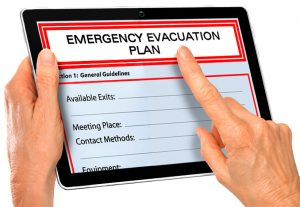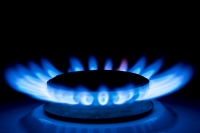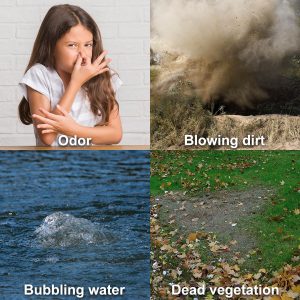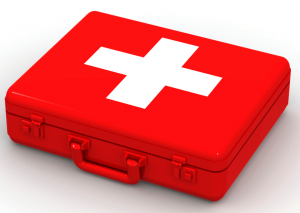In Case of a Natural Gas Emergency
Safety Drills
Go over your emergency response plan and keep the following tips in mind:

- Know what the emergency plan is.
- Remember to move slowly and carefully.
- Don’t turn lights on or off.
- Don’t light matches or lighters.
- Don’t use a flashlight or telephone (even a cell phone) because an electric arc might ignite the gas.
- Leave doors open to ventilate the room after you are out.
Indoor Gas Leaks
If you think you smell natural gas: 
- Don’t turn electrical switches on or off, light a match, or use a flashlight or telephone. An electric arc can ignite gas, causing an explosion.
- If the odor is strong or persistent, do not open windows; instead, get everyone outdoors immediately.
- Call the North Shore Gas emergency number: 866-556-6005.
Gas Pipeline Leaks
Leaks from natural gas pipelines, although rare, can be a fire hazard. Pipeline leaks usually smell like sulfur or rotten eggs—but not always. So don’t rely on your nose alone. Be alert for any of the following signs:
Warning Signs:
- A hissing or roaring sound
- Dirt blowing or spraying into the air
- Continuous bubbling in water
- Plants dead or dying for no apparent reason
What to Do:
- Do not use fire or electricity. Even the smallest spark from a cell phone, flashlight, or match could ignite the gas.
- Go far away from the area and do not return until safety officials say it is safe to do so.
- Report the leak to 911 and the local gas utility.
First Aid for Burns
If someone is burned, don’t panic. Administer first aid:
- Cool a burn by holding it under cold running water. Don’t use butter, ointment, or ice.
- Cover minor burns with a sterile bandage.
- If burns are severe, wrap patient in a clean sheet and cover with a blanket until trained medical assistance is available. Rush victim to a hospital or call 911.
